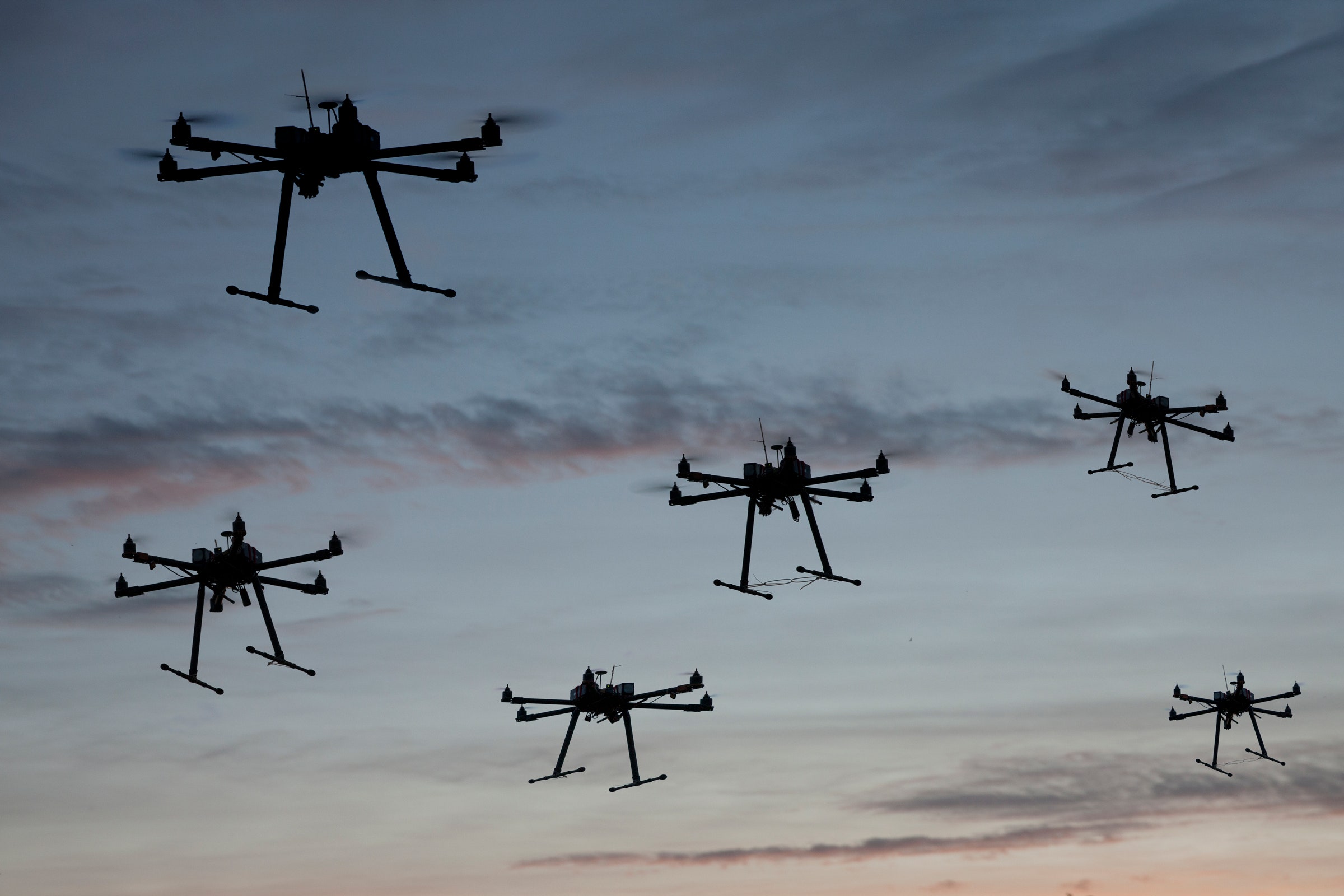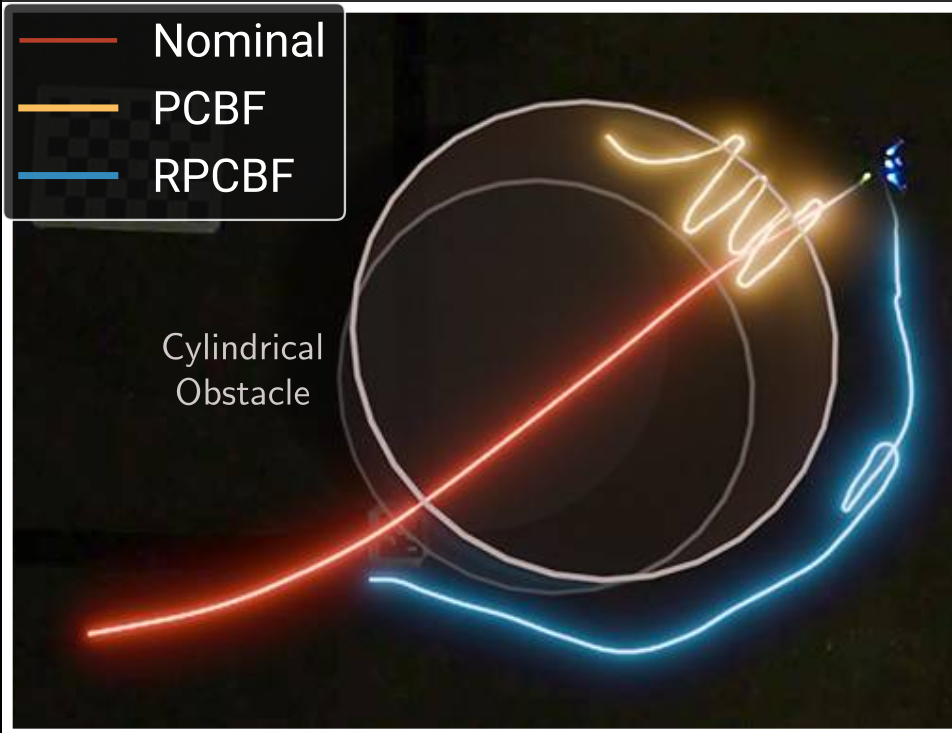SECURE: Secure Interaction-aware Multi-robot Cooperation

People
Funding
This project is funded by the Office of Naval Research Global (ONRG).
About the Project
Autonomous mobile robots will provide fundamental help to humans in a variety of missions, such as area monitoring, surveillance, exploration, information gathering or construction of infrastructures, potentially in cooperation with robots from other organizations. The result of this cooperation will be a heterogeneous team of robots with different capabilities and interfaces, possibly working together with humans. Robots will have to communicate with each other and share sensitive information, which is not possible with currently available methods.
SECURE aims to resolve the conflicting objectives of safety, security, and privacy. For instance, modifying shared information for security purposes could compromise the safety of the robots. The proposed multi-robot coordination framework will feature several interconnected modules to ensure security and privacy while maintaining safety. By integrating control theory, robotics, and computer science, SECURE will develop an innovative interaction-aware framework for robots to navigate near other agents. This will be enhanced by an active-diagnosis strategy to detect and isolate malicious agents within the network. The project will also explore how to shape robot navigation constraints to account for communication delays and leverage robust control approaches to enhance network security and interaction safety.
The project will develop open-source algorithms and demonstrate their effectiveness using autonomous mobile robots like Micro Aerial Vehicles or mobile manipulators. The ultimate goal is to enable the safe and secure deployment of a team of mobile robots in unknown environments in cooperation with other parties.
Funding & Partners
This project is funded by the Office of Naval Research Global (ONRG).
Related Publications
Safety on the Fly: Constructing Robust Safety Filters Via Policy Control Barrier Functions At Runtime
In IEEE Robotics and Automation Letters (RA-L),
2025.
